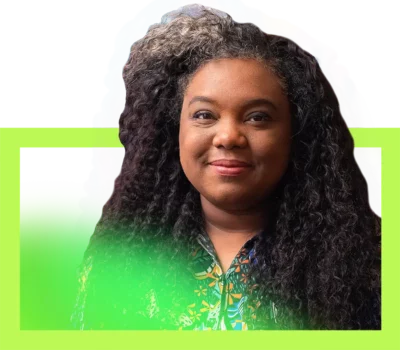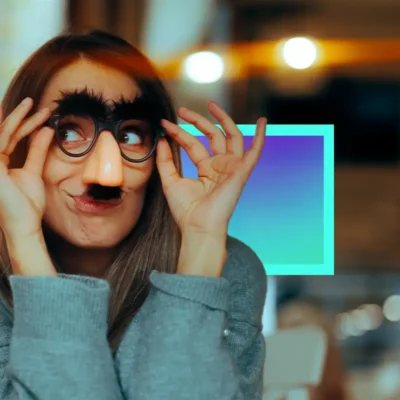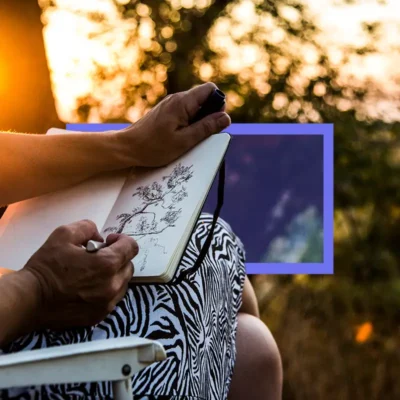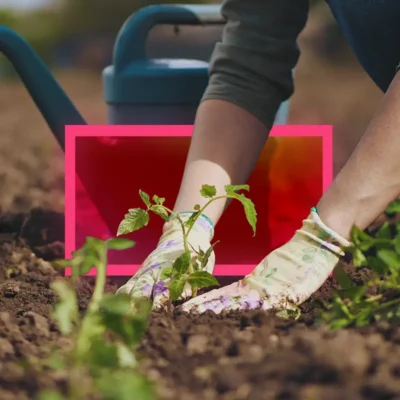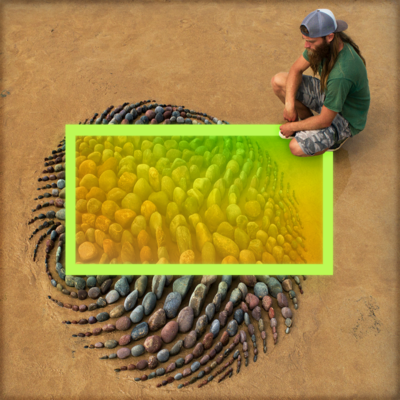Belonging can be found far from home
Morgan Harper Nichols is a songwriter, poet, artist, and musician who was diagnosed with autism as an adult. Growing up, she yearns to see the wider world outside her rural home, and to embark on adventures like Bilbo Baggins. When she spends a semester studying abroad, she finds herself surrounded by the unfamiliar — and feeling rejected and lonely sometimes. But by stepping into the unknown, she begins to discover what is most important to her — and finds a new path to belonging.
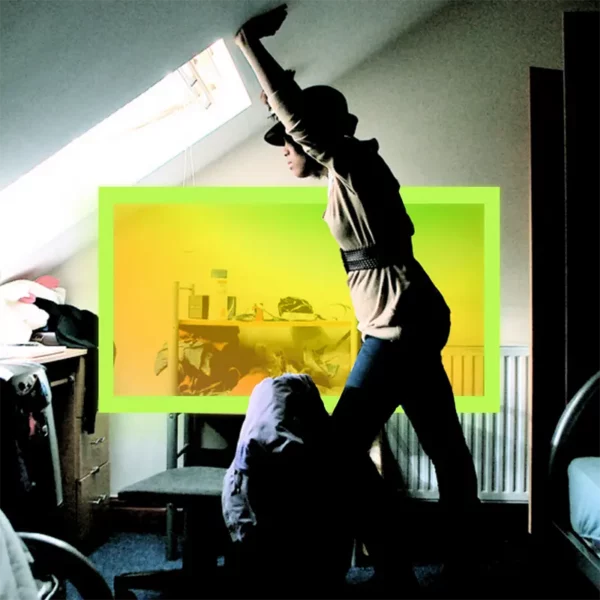
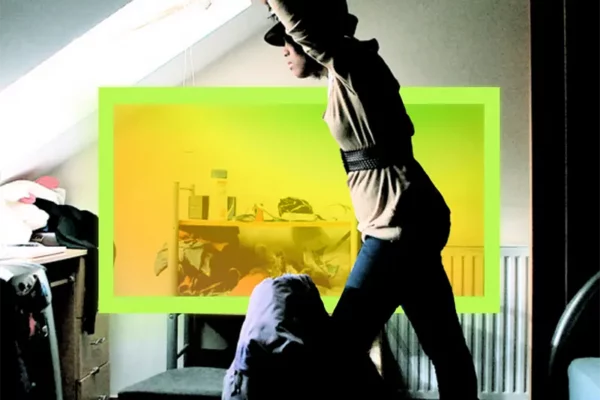
Table of Contents:
Transcript:
Belonging can be found far from home
MORGAN HARPER NICHOLS: Here in Birmingham, for the first time, I’m able to see, oh, this is who I am. This is my culture. This is who I identify with. And with that new and stronger sense, I have a yearning to express that creatively. As the months go by in England, my passion for the written word grows and grows.
ROHAN GUNATILLAKE: Morgan Harper Nichols is a songwriter, poet, artist and musician. Diagnosed with autism as an adult, she always felt ‘different.’ Morgan was homeschooled from an early age, and yearned to see the wider world outside her home of Stone Mountain, Georgia. During a semester studying abroad, she finds herself surrounded by the unfamiliar, feeling rejected and lonely at times. Before Morgan can discover a new path to belonging, through her creative expression, she learns how talking about our identities can make us feel stronger and bring us closer together.
In this series, we combine immersive first-person stories, breathtaking music, and mindfulness prompts so that we may see our lives reflected back to us in other people’s stories. And that can lead to improvements in our own inner lives.
From WaitWhat, this is Meditative Story. I’m Rohan, and I’ll be your guide.
The body relaxed. The body breathing. Your senses open. Your mind open. Meeting the world.
NICHOLS: The doorbell rings. I run downstairs. It’s the mailman. He delivers a tangerine yellow package with crimson lettering that spells out D H L. I’ve never seen a package like this, it must be from overseas. It’s addressed to me. Mom hands it over, eyes wide with anticipation. It feels…bulky. The label reads: The University of Birmingham, England. I feel my heart beat against my chest.
Sunlight streams in from the window at the end of the hallway. It fills the room with a warm glow.
Mom and I look from the package to each other.
“I think it’s too heavy to be a rejection letter,” I say.
“Well, open it,” Mom says.
I rip open the cardboard. I pull out some padding and a folder. I’ve been accepted to the study-abroad program starting in just a few months. I give a little yelp and hug my mom. I know there’s so much to figure out. I’ll need to raise money. I don’t even have a passport. I don’t know anyone who’s ever done anything like this.
I peer out the window as the plane descends below the thick gray clouds at Heathrow. I see rows of red brick terraced houses with slanted roofs. The buildings are tightly packed together. It’s unlike anything I’ve seen in the Georgia suburbs where I grew up. It’s as if I’ve gone through a portal to a different time, to a different reality.
Once I land, I stumble around in my big, gray, puffy coat that hangs down to my ankles. My mother makes me wear it. We didn’t do the weather conversion from celsius to fahrenheit. I’m overheating. I shuffle into a window seat on the train to Birmingham, my knapsack, a huge suitcase and my guitar.
Normally, I have a lot of fear. I always have a long list of everything that can go wrong. But for whatever reason, right now I have no list. My parents and I did everything we could to get me here. Scholarships. Student loans. And countless hours singing and playing guitar in coffee shops, grateful for every single, five or twenty dollar bill that was tossed in my guitar case.
My adrenaline is pumping, I’m on a mission.
I stare out the train window. The gray city views eventually turn to open green fields. My mind drifts back to when I couldn’t even imagine an opportunity to leave the U.S.
My world in Stone Mountain-Lithonia, Georgia is small.
My town is mostly Black, like me. The grownups are kind. They welcome me.
But I’m homeschooled until 12th grade, so I don’t have many friends my own age growing up. I feel…isolated. And at this point in my life, I’ve heard the word “autism.” It’ll be years before I understand how much it explains what I’m going through.
The main group of kids I hang out with are from the small church where my parents are pastors, and I’m not cool enough for them.
Late one afternoon, I sit on the church’s carpeted green steps reading the fantasy epic The Hobbit. I love it so much I read it over and over. The sun filters through the trees, it provides the perfect reading light. I hold the book open, proudly, as I prop up against the post on the staircase. It’s the middle of summer. The other kids run around. Laughing. Screaming. Waiting for their parents to pick them up. Then one boy passes by me and looks down. He says. “You’re so weird,” and he just keeps walking.
It catches me off-guard, how casually he says it. Like it’s a fact. I hear other kids say “You’re different. You’re Strange.” Does everyone think I’m weird? Does everyone think I don’t belong?
I look back down at my book. Reading it returns me to the world of Bilbo Baggins, a kid who loves his beautiful home, but is ready to venture out. He makes friends everywhere through the adventures they embark on together. I want to move through the world like this. I want to stop worrying about my differences. I want to belong.
GUNATILLAKE: It’s a lovely idea, to be more Bilbo. Is there a character from fiction who represents a way of being in the world that you aspire to? Bring them to mind.
NICHOLS: Years later, I sit in English class. Somehow, I end up being the only Black person in the room. We break out into small groups. Every student in my group seems relaxed, not me. A boy stands up and reads his paper out loud on “why the civil war was not about race.” Another in my group blurts out, “Morgan, how do you feel about this?” Oh gosh. This is a class where students feel totally comfortable saying racist things out loud. It doesn’t feel safe to draw attention to myself. So I try to talk myself out of the conversation. “I think … I think … there’s a lot more to it … and I think it’s wrong to assume … I think there’s not enough time left in this class to talk about it today and yeah, that’s what I think. So yeah.” Words spill out, but I don’t make any sense. The boy who asks me the question doesn’t care, he looks back at his paper. Embarrassed, I wonder, should I have shared my honest experiences? Instead, I remain non-confrontational. It’s part of the way I’m autistic.
As a sophomore in high school I sit at my home computer, the glow from the screen washes over me. I still have trouble making friends. I play the guitar and write poetry, to share parts of myself. A world map sits open in my browser window. I want to explore what lies outside my home state of Georgia. I’m looking for a new place to find community, out from under the shadow of who I’ve been. I guide the mouse, guide my mind, guide my hope east. All the way across the Ocean…And the first place my gaze lands on is a town in the middle of England. I research colleges in the region. I’m drawn to the squares and greenery on the campus of a university I’ve never heard of, The University of Birmingham.
The wide open spaces remind me of a cross-country road trip my family took when I was six years old. I remember us driving through West Texas, how it went on forever. Seeing the openness of the landscape, the vastness of the clear blue sky, plants the seed in my mind that there is more out there, there’s more out there for me.
And I’m not going to give up finding out what that more is.
In Birmingham, I live in a narrow, three-story red brick terraced house, just like I saw from the plane.
I have six roommates, all students from different parts of the U.S. I’m the only person of color, but that’s not new, the college program I left is mostly white. I’m often asked “what’s that seasoning you are putting in your food”, or “what’s that product you are using in your hair?”
I share a room in the attic. The whole house smells of rain and shampoo and morning toast. The slanted side of the room has one window. It takes my roommate and I an entire month to figure out how to open it! Everything here is different. Where do we put the trash and how do we turn the heat on? We laugh, scratch our heads and bond over our shared confusion.
The day after I arrive I try to get my bearings. I walk around the neighborhood on my way to international student orientation. As I cross a footbridge, the campus opens up to lush greenery and majestic scholarly buildings. Rugby practice takes place on a patch of grass to my right. Students pour in and out of buildings to my left. I notice everyone in England speaks a few decibels quieter than in the States. I like it.
My orientation is right by the clock tower, the same one I spotted on the internet four years ago. It’s surreal. I made it. There are kids here from Mexico, Canada, France, India… everywhere. One thing that surprises me is how being American precedes my Blackness. When I get to know new people it’s like “Oh, you’re from the US.” And I’m like, “I am. I am from the US.” But I think to myself in the US, being black, I’m in this other category a lot of times. But I don’t feel that here. We’re all international students, together. It’s a group that includes us all.
I’m just so happy to be here. To explore. To study literature and poetry. To make friends.
I end up traveling half-way across the world but I find everything I need in the four blocks around where I live: the pubs and restaurants on main street, the print shop, the classrooms where I study English Literature and the bookstore I cherish.
But that all changes when I need to get my hair done.
The weather in Birmingham is cold, gray, windy and rainy. I dodge puddles on my daily walks.
My hair’s cut in a bob. I wear it straight, but it’s naturally curly. As it grows out in the damp weather it continues to get bigger and bigger. Losing its shape. Going wild.
In my hometown a lot of people look like me. I can always find a Black salon, where someone knows what to do with my hair. Here, I’m worried.
I pass the hair salon on main street every day on my way to class. I notice the posters in the windows only feature white people. That’s a sign things might not go the way I want them to.
I open the door and peek my head in. It’s simple, clean — white walls, white tile floor. It smells good, fruity, floral. The place is practically empty and a woman at the desk smiles. I tell her what’s going on with my hair and the kind of trim I need. “Yes sure, we can do that,” she says. We schedule an appointment for that Friday. I step back out in the drizzle, feeling relieved.
But on the day of my appointment the salon is crowded. The woman who helped me last time isn’t here. I tell them my name. The stylist I’m booked with looks up from her client’s hair and glares at me for what seems like a lifetime. She walks toward me and says, “We can’t do your hair.”
“Oh,” I say. “I just talked to someone the other day. Why can’t you do my hair?” “Because it’s…curly,” she says. For a moment, I think about the notion of a stylist who doesn’t know how to do curly hair. It’s absurd.
But I really need this appointment. So I keep trying. “It’s not unmanageable curls,” I say. “I can show you how to comb it out.” Now I’m offering her solutions. “Here’s what happens when it’s wet, here’s what to do next. When you wash it, you’ll see.”
I’ve never had to explain myself this way before.
Finally I see that nothing more is happening here. She’s decided she’s not interested. The woman whose hair she’s styling looks like she wants me to go away. I’m so uncomfortable. All I have left to say is, “OK, well, thanks. I’ll try to find somewhere else.”
I stumble out into the cold and think: I don’t know where to go from here. I take stock of my emotions. I’m fragile, flustered, self-conscious, ashamed and so embarrassed.
It may seem like a small thing, my hair. But it’s an important part of my daily routine. It’s part of how I take care of myself. It’s part of who I am.
Walking slowly up the street I wonder, who can I ask for help? Not my roommates.
I try to think of points of reference, I have none. Even for all of the times back home where I may feel alone or different, I always have points of reference to get me back on track. I always have at least one grownup, sometimes my mom, my dad, a professor, a friend, one road that I know will get me back on course. But at this moment, there are no roads. I feel so…lonely.
In the days that follow I’m annoyed passing the salon on main street as I meet friends, buy groceries and run errands. It’s a constant reminder of a space in which I don’t belong.
GUNATILLAKE: Feeling like we don’t belong can be painful. And being in a space and a community where we do, feels so freeing. Reflect on what it feels like to belong, and enjoy any lightness that comes up.
NICHOLS: Around this time I end up at a house with friends who are cooking and hanging out. It’s a diverse group. My South African friend Elizabeth, explains the cricket game on TV; it’s my first time watching. My Pakistani friend Aman cooks a curry dish that’s brand new to all of us. We all chatter back and forth while sitting in an assortment of chairs around the television. The rest of the crowd consists of a friend from Nigeria, three Americans and two English students.
As we sit to eat, out of nowhere one of the English guys probes, “Morgan, both you and John are black, how come your skin color is lighter than his?” Why’s he asking me this now? I think to myself: I don’t really want to talk about it. I just want to sit here, eat my curry, watch cricket and go home like everybody else.” I’m not here to have a big cultural moment with you right now. I’m really tired.
But in that moment something happens. I feel the anger building up inside me. I don’t want to back down.
Unexpectedly I launch into a full, unapologetic history lesson as to why this is. I don’t waste a single detail. I’m a descendant of African enslaved people, brought to the plantations in the Americas where white slave owners had inappropriate relationships. These are the only words I can come up with in this moment. I give as many details as I can. I continue “If you meet a black person from where I’m from the reason why we have different skin complexions is not because of interracial marriage.” I unleash about Thomas Jefferson and his inappropriate relations with Sally Hemings, the woman he enslaved, who bore his children. As the words spill out of my mouth I feel myself becoming a different person.
The Morgan who stood quiet on the church steps, who held back in the hair salon, who was made to feel like she didn’t belong for being black, autistic, a woman, no longer cares what you have to say about her.
This is my story. This is why I look the way I look.
The entire room goes quiet once I’m done. I glance at John, my friend from Nigeria and he nods knowingly.
We sit down, we eat our food. I feel proud. Like I can sit more comfortably at the table.
Sitting in that room, I’m learning that being so far away makes me feel more like who I am. I think a lot of times, many of us struggle with feeling like: what is our culture? Who are we? What does Homeland mean to us? And here in Birmingham, for the first time, I’m able to see, oh, this is who I am. This is my culture. This is who I identify with. And with that new and stronger sense, I have a yearning to express that creatively. As the months go by in England, my passion for the written word grows and grows.
When I get back to my college in Georgia for my senior year, I write more songs and I write poetry. Lots of poetry. Poems that tell who I am, what I want, how I see the world. These poems become my bridge to the rest of the world. “If you want to understand me, read this. And this.” The more I express myself, the more I feel like I belong, no matter where I go next.
My first poetry class is in a beautiful wood building, at a school that’s more like a lodge. I’m a graduate student at the University of Nebraska at Omaha. But I’m not in Omaha. This is rural Nebraska. Birds chirp outside our classroom windows, and beyond them is the vast green and tan prairie.
Inside, at the front of the classroom, there’s a whiteboard, and a little podium. A group of about 15 of us sit around a U-shaped conference table. Two of us are Black. That’s actually one more than I expected.
It’s a mix of first-year and second-year students in the room. We’re all holding packets of each other’s poems, and now it’s time to discuss them. The second-years seem to know the routine — they’re already talking and shouting out details they like.
My poem Americano has lines that go like this:
An old man is asking for
regular coffee and nothing else in an
independent coffee shop.
He walked there after his
doctor’s appointment where he
is waiting for his daughter to
take him home. In his
corduroy slacks and beige
overcoat, he looks around wondering
where all of these people
came from.
“Hey, Morgan,” says a voice across the table. It’s the other Black student. He looks like he could be my cousin. He has a round face. Glasses. He’s tall and lanky. He uses his hands when he speaks. He’s very animated.
“I just want to let you know I was so excited when I read your poem,” he says. “I just knew when I read it that you were a Black poet.” It seems like magic, that something I wrote gave him this instant feeling of connection.
His outward expression reflects how I feel inside. Accepted. I’m Welcome. I have chills, happy chills. He’s telling me, I’m so glad you’re here. We need to hear your story.
My body relaxes, even in this room where I am different. I’m like, okay, I’m seen. I belong.
Rohan’s closing meditation
GUNATILLAKE: Thank you Morgan.
Now, I understand how Morgan’s body becomes relaxed when she feels accepted by her fellow student, when she feels seen. It’s totally a thing.
So for our short meditation together, how about we explore those themes and start with relaxation.
Notice how your body is. And let’s invite it to soften.
You don’t need to be any particular posture to do the meditations in this show. You don’t even need to be still.
So however you body is, whatever position, take a few breaths to know how it feels.
And just by inviting it to soften, to relax it may do it by itself.
Because in a world where we don’t always know when we are holding onto stuff, sometimes all it takes is the safety of knowing we have permission to do something before we can let go.
If we don’t feel safe, if we don’t feel seen, then we will always be defending ourselves, holding ourselves back.
And if we’re defending ourselves, then we tend not to have the energy to do much more, let alone the security within ourselves to transform and grow.
So let’s work on acceptance and being seen.
And as with much of mindfulness practice, we’ll start inside.
What we’re going to do is move between different aspects of our body and mind, see them, really see them and invite whatever level of acceptance is there.
And we’ll start with the belly. So drop your attention into your belly, your tummy, your gut. And know what is here to be known. Feel this area as it is. See it.
And however it feels, however it is, our intention is to accept it. Not to want it to be different to how it is. Accepting the belly and how it feels. We can do it.
Now. Scanning the body for tension or tiredness and knowing whatever sensations there are. Seeing them for what they are. Maybe it’s tiredness known in the eyes. Maybe it’s tension in the face or in the shoulders. Whatever it is, we’re seeing it. And accepting it. It’s here for good reason. No need to fight it being here. Better to see it and accept it.
Our distractions, and our thought patterns that agitate the mind. See them. Accept them.
There is some calm in our mind. Be that a loud calm or a quiet calm. Take a few breaths to settle with it. Seeing it for what it is. And accepting it. Our mind can be calm.
And having done this short practice, notice what your body is like now. How it might have changed since we started.
Being able to see ourselves and others and to accept them for who they are really is a super power.
So as we transition out of this meditation let’s make this intention.
As you move through the next few days, when there is someone whom you sense needs to be seen, see them, and tell them that they are seen.
And notice any changes in the body that arise.
Thank you Morgan for your story and for reminding me of how important it is to be seen.
And thank you.
I see you.

